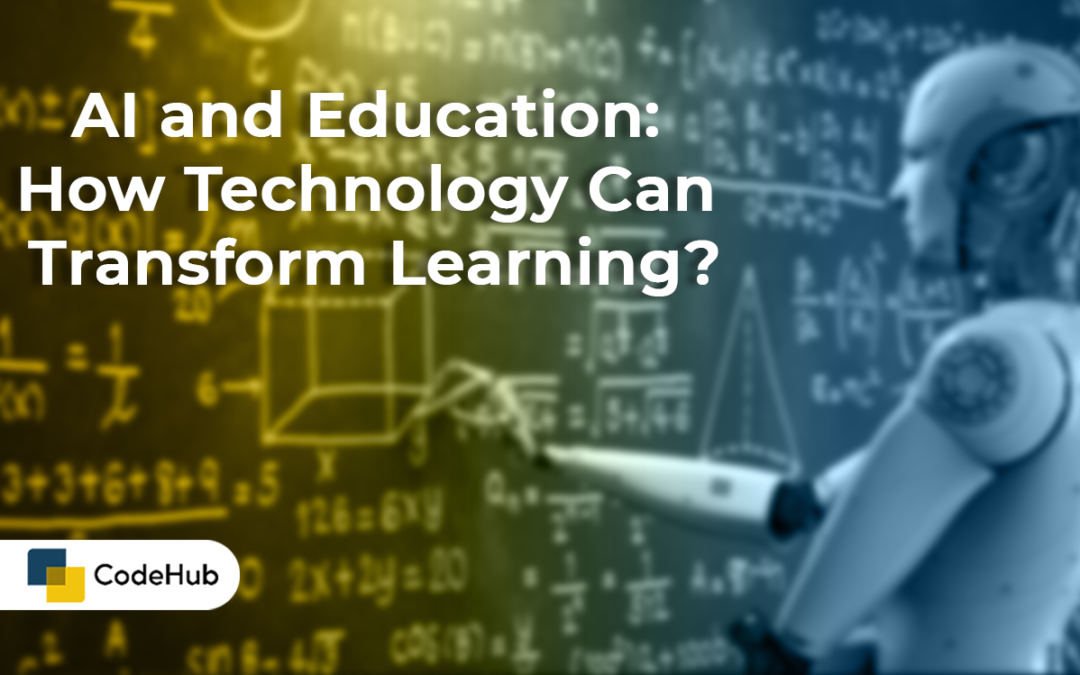Artificial intelligence (AI) is a term that refers to the ability of machines to perform tasks that normally require human intelligence, such as reasoning, learning, decision-making, and creativity. AI has been advancing rapidly in recent years, thanks to the availability of large amounts of data, powerful computing resources, and innovative algorithms. AI has the potential to revolutionize various sectors of society, including education.
Education is a fundamental human right and a key driver of social and economic development. However, education faces many challenges in the 21st century, such as access, quality, equity, relevance, and sustainability. How can AI help address these challenges and enhance the learning experience for students and teachers alike? Here are some of the benefits and opportunities of AI in education:
- Personalization: AI can help tailor the curriculum and instruction to the individual needs, preferences, and goals of each student. By analyzing data from various sources, such as learning histories, assessments, feedback, and behavior, AI can provide adaptive learning paths, customized content, and personalized feedback. AI can also help students learn at their own pace and style, as well as offer personalized tutoring and support.
- Engagement: AI can help increase the motivation and interest of students in learning by providing interactive and immersive experiences. For example, AI can create realistic simulations, games, and virtual reality environments that allow students to explore and experiment with different concepts and scenarios. AI can also use natural language processing and speech recognition to enable conversational agents and chatbots that can assist students with questions, explanations, and feedback.
- Assessment: AI can help improve the quality and efficiency of assessment by providing automated grading, feedback, and analytics. AI can also help design more authentic and meaningful assessments that measure not only knowledge and skills, but also higher-order thinking abilities, such as creativity, problem-solving, and collaboration. AI can also help monitor the progress and performance of students and provide early detection and intervention for learning difficulties or risks.
- Inclusion: AI can help promote inclusion and equity in education by providing access to quality learning opportunities for all students, regardless of their location, background, or abilities. AI can help overcome barriers such as language, culture, disability, or poverty by providing translation, transcription, captioning, voice synthesis, accessibility features, and adaptive technologies. AI can also help foster diversity and intercultural understanding by exposing students to different perspectives and cultures.
- Innovation: AI can help foster innovation and creativity in education by providing new tools and methods for teaching and learning. AI can help teachers design more engaging and effective learning activities, as well as provide them with insights and recommendations to improve their practice. AI can also help students develop new skills and competencies that are essential for the future, such as digital literacy, computational thinking, data science, and artificial intelligence itself.
However, AI also poses some challenges and risks for education that need to be addressed carefully. Some of these challenges include:
- Ethics: AI raises ethical issues such as privacy, security, bias, transparency, accountability, and human dignity. How can we ensure that the data collected and used by AI is protected from misuse or abuse? How can we prevent or mitigate the potential harms or errors caused by AI? How can we ensure that the decisions made by AI are fair, explainable, and trustworthy? How can we respect the autonomy and agency of human learners and teachers in relation to AI?
- Regulation: AI requires appropriate regulation and governance to ensure its quality, safety, reliability, and legality. How can we establish standards and norms for the development and deployment of AI in education? How can we monitor and evaluate the impact of AI on education outcomes? How can we balance the benefits of innovation with the risks of disruption or displacement?
- Education: AI requires education to prepare students for a world where technology is ubiquitous and influential. How can we equip students with the knowledge and skills to understand how AI works and how it affects their lives? How can we empower students to use AI responsibly and ethically? How can we inspire students to create new solutions with AI for social good?
AI is not a magic bullet that can solve all the problems in education. It is a tool that can augment human capabilities and complement human efforts. It is up to us to use it wisely and responsibly for the benefit of all learners. As UNESCO states in its Beijing Consensus on Artificial Intelligence, “AI should be at the service of humanity’s best interests”.

